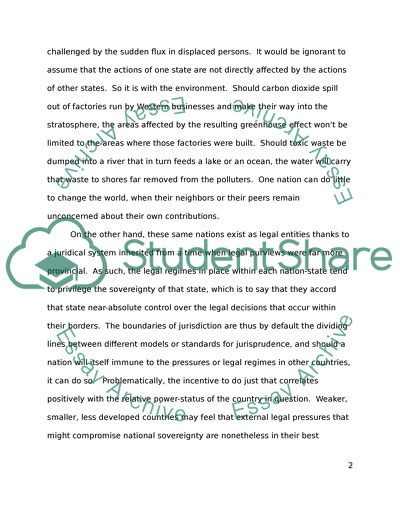Cite this document
(“The Role of International Law in Preserving the Environment Essay”, n.d.)
Retrieved from https://studentshare.org/environmental-studies/1420710-the-role-of-international-law-in-preserving-the
Retrieved from https://studentshare.org/environmental-studies/1420710-the-role-of-international-law-in-preserving-the
(The Role of International Law in Preserving the Environment Essay)
https://studentshare.org/environmental-studies/1420710-the-role-of-international-law-in-preserving-the.
https://studentshare.org/environmental-studies/1420710-the-role-of-international-law-in-preserving-the.
“The Role of International Law in Preserving the Environment Essay”, n.d. https://studentshare.org/environmental-studies/1420710-the-role-of-international-law-in-preserving-the.


